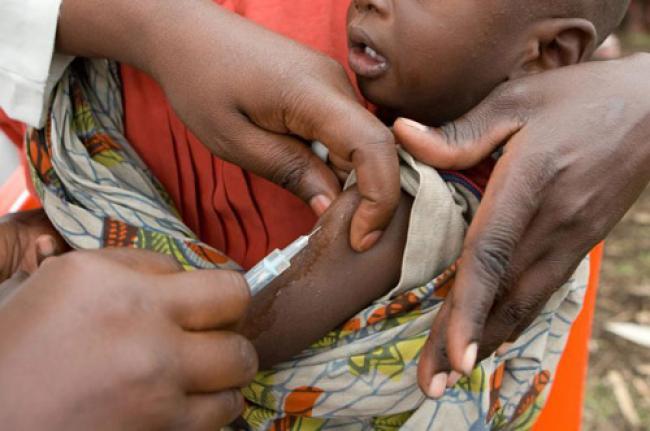11 Jun 2014, 08:25 am Print

"This is extremely alarming. There is a very poor health care system due to the years of conflict," warned Dr. Ghulam Popal, Somalia Representative of the UN World Health Organization (WHO).
"We know there have been extremely low immunization rates among Somali children and we need to urgently ensure as many as possible are vaccinated."
There were over 1,350 suspected cases of measles in March and April 2014 – four times more than the number during the same period last year, and nearly 1,000 cases were reported in May alone, according to the UN Children's Fund (UNICEF).
In response, with support from WHO, UNICEF and partners, Somali health authorities have launched small scale vaccination campaigns and will carry out larger emergency vaccination in the most affected areas of Bari, Nugaal, Mudug, Banadir and Lower Juba this month, targeting half a million children under five.
"We have a very high number of malnourished Somali children," said Sikander Khan, UNICEF Somalia Representative, adding that "Malnourished children here are more susceptible to disease – and are more likely to die or suffer life long disability such as blindness, deafness or brain damage as a result of contracting measles."
Both WHO and UNICEF underscore that national measles campaigns need to be conducted immediately to avoid unnecessary deaths. This means vaccinating about 5 million children and young people between the ages of 9 months to 15 years old, at an estimated cost of USD 9 million.
Further, according to WHO, 10 per cent of children affected by measles could die from complications, especially in complex emergency situations like Somalia.
Two decades of conflict have ruined Somalia’s health sector, leaving the country with some of the worst health and nutrition indicators in the world. Approximately one in five children dies before their fifth birthday – with measles as one of the main causes.
UN Photo/Marie Frechon
- Every hour, 100 people die of loneliness-related causes, says WHO
- DR Congo: New initiative to eliminate HIV in children ‘a beacon of hope’, says UN
- WHO study shows tobacco control efforts protect three-quarters of the world’s population
- Drinking coffee can help you live longer, a new study reveals
- New study finds women who work night shifts are more likely to have asthma






